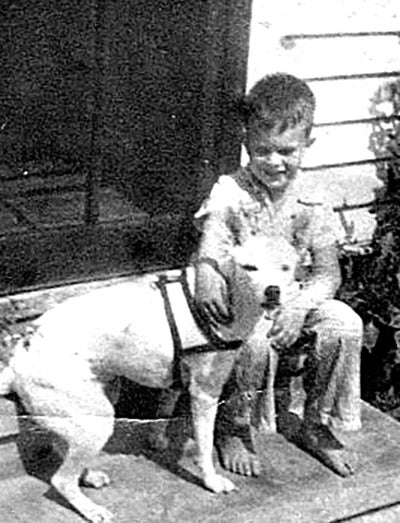And Now You Know: Reflecting on 1923: Asphalt at the Port, Strong Leader Editorial, An Old Soldier Visits Orange
Published 12:30 am Saturday, December 11, 2021

- And Now You Know
|
Getting your Trinity Audio player ready...
|
Business at the Port of Orange was exciting in late January 1923. The first cargo of asphalt from the Island of Trinidad arrived January 24 and was being unloaded. The schooner Hope Sherwood had arrived January 23 with 929 tons of asphalt manufactured by the Barber Asphalt Company based on the Island of Trinidad. It was the first shipment of an expected 45,000 tons to be received at the port.
The asphalt was being stored in the warehouse at the port. Three new warehouses were under construction. The lack of warehouse space was not expected to cause problems with the asphalt importation. The first of the three new warehouses was expected to be completed by February 1, 1924. In the meantime, there was enough space for the expected shipments from Trinidad.
Another schooner, the M.J. Thompson left Trinidad on January 11 and was expected to arrive January 27 with the second cargo of asphalt.
The total of 45, 000 tons could increase in accordance with rate adjustments that were pending and the completion of the additional warehouse space.
The asphalt would be shipped out of the port by rail.
The editor of the Orange Daily Leader wrote a strong editorial about “Shirkers”.
He wrote: “During the days when Uncle Sam called his men to the colors to make the world safe for democracy those who stayed home and reaped the benefits of high wages were called “Slackers” by those “who did their bit.”
“In the present day and age there are quite a few merchants who “Let George Do It”—By that we mean that they let the other fellow lead in all forward movements for the betterment of town and country. They are fellows who sit back and let their competitors pay the advertising bills that keep most of the trade in Orange. When one enterprising merchant advertises specials or seasonal goods that aid the buyer and causes them to spend their hard-earned money at home, the other fellows sit back and naturally reap some of the benefits of the advertising by getting some chance customers who are attracted by their window displays.”
“These merchants are in a sense “Shirkers.” They don’t do their part in helping build up and supporting the city. What kind of a town would we be without a newspaper? Every sensible person will agree that about half the stores would be forced to close their doors and cobwebs would line their shelves.”
“We are sorry to state, too few of the merchants are trying to keep the citizens of this town here by offering them “attractive reasons” for trading at home. Without of town papers circulating in this city and mail order catalogs pouring in, it is high time to break away from the policy of “Letting George Do It” and start the “Trade at Home” policy that you would have others pursue by “Patronizing Home Industries.”
Capt. Gus Higby, 84 years old, visited Orange January 23 for the first time in over 20 years and was agreeably surprised to meet and greet quite a few of his old-time friends and acquaintances. He was astonished at the changes that had taken place in the appearances of Orange and was prone to recall to the mind of his companion, Capt. F.C. Plummer of Port Arthur, the pilot who had escorted the Lake Slavi from the city wharves to Beaumont, remembrances of the old days.
Capt. Higby said, “I remember when the old city jail was located between the Ochlitree house and the present site of the T. & N.O. Railroad depot.”
“Yes”, agreed Capt. Plummer, “I remember many’s the time I used to go to that building and get my crew out of jail just before time to sail—if they did not show up, I always knew where to find them.”
Capt. Higby was spending his winter months with his friends in Beaumont and Port Arthur. He was on a furlough from the Old Soldiers Home at Fort Leavenworth where he had lived since 1915, when he retired from a 33 year career as proprietor of the store at Sabine Pass.
The Captain told a Leader reporter that he used to sail on the high seas on a sloop before the days of steam propelled vessels. He said he had brought many loads of oysters and oranges to Orange from different ports along the Gulf Coast.
At the beginning of the Civil War, he had enlisted as a private in Company E, 2nd New York Veteran Volunteer Calvary. He worked through the ranks to Lieutenant and later made Captain.
He stated he had retired with a “tidy sum” but preferred to spend his remaining days with his comrades of his Civil War days who lived at Fort Leavenworth.
Leaving the Leader office, he proudly showed a picture of “how I used to look”, and his furlough for 90 days from Fort Leavenworth.
“And now you know.”






